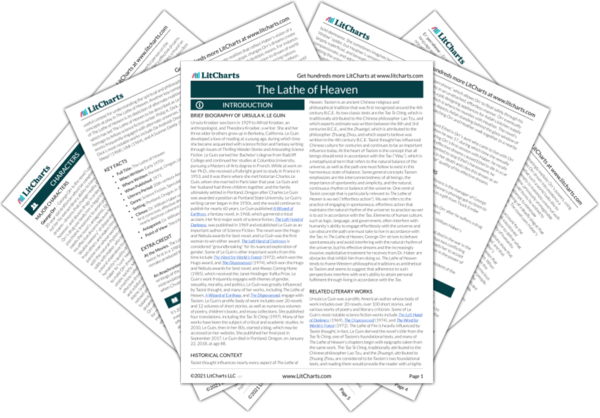Haber’s “opaque eyes” symbolize his unwillingness to communicate honestly with Orr. Haber needs to maintain the upper hand in every situation, so he avoids putting himself in situations that demand vulnerability, such as open communication. Haber’s claims about making a world where “nothing will be left to chance, to random impulse, to irrational narcissistic whim” reflects his rejection of the Taoist principle of
wu wei, or effortless action. Haber believes that letting things run their natural course will lead to destruction and suffering, and that the world needs human interference to steer things in the right direction. Haber associates deliberate action with “progress” and Orr’s inaction with “nihilism,” or the belief that life is meaningless. He sees Orr’s inaction as indifference, when Orr’s inaction actually reflects a deep respect for the collective universe
independent of its relationship to humanity: he believes in a universal meaning beyond humanity’s ability to comprehend, which is why he refuses to impose himself and his whims on it. In this way, Haber’s comment about creating a world where “nothing will be left […] to irrational narcissistic whim” is ironic, since the act of creating such a world is
itself an irrational narcissistic whim.


